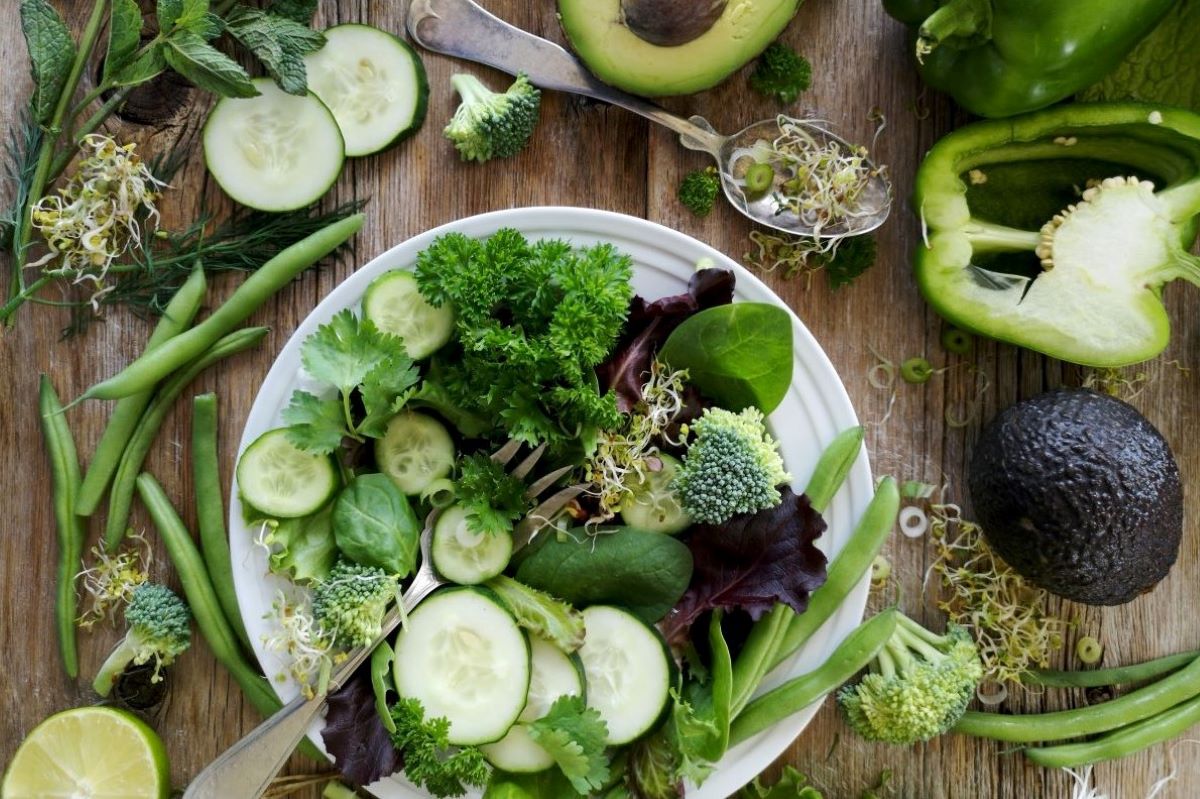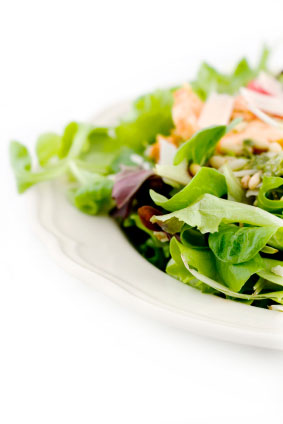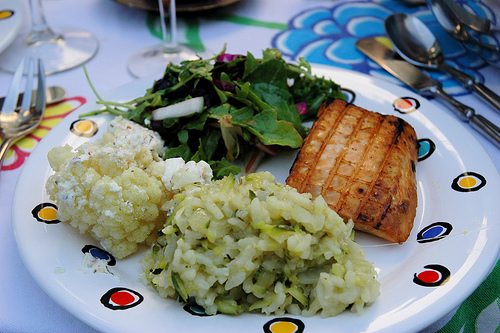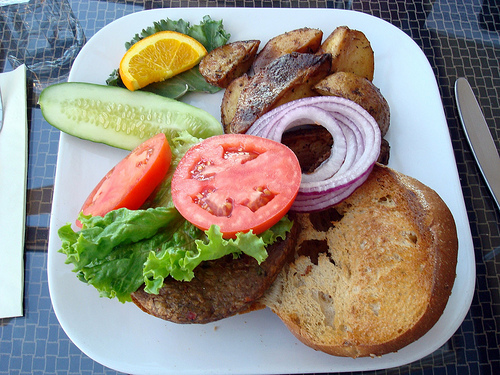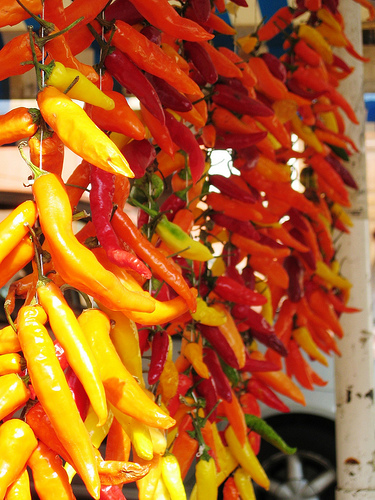Table of Contents
In recent years, a dramatic shift towards healthier dietary patterns has become evident, with many people adopting vegan and plant-based eating lifestyles. What are the distinctions between these two diets?
This comprehensive guide explores the differences, nutritional implications, environmental impacts, and more.
Quick Answers
Are Vegan and Plant-Based the same?
People who follow a plant-based diet generally do not consume any animal products, just like vegans. Both plant-based diets and vegan diets avoid meat, dairy, eggs, and other animal-derived ingredients. The primary focus of both diets is on consuming foods that come from plants, rather than animal-sources.
It’ important to note that the terms “plant-based” and “vegan” are sometimes used differently by individuals, and can have varying interpretations. Here are a couple of distinctions:
Strict Vegan Diet: Vegans strictly avoid all animal products in their diet and lifestyle, which includes food, clothing, cosmetics, and other products made from animals or tested on animals.
Plant-Based Diet with Exceptions: Some people who identify as plant-based may focus primarily on eating plant foods but could make occasional exceptions. For instance, they might consume honey, use products tested on animals, or wear clothing made from animal-derived materials. These individuals may refer to themselves as “plant-based” rather than “vegan” to signify these exceptions.
What is a Plant-Based Diet?
A plant-based diet primarily emphasizes consuming whole, minimally processed plant-derived foods. This includes various fruits, vegetables, whole grains, legumes, nuts, and seeds. While the focus is predominantly on plant foods, those following a plant-based diet may occasionally include small amounts of animal products like dairy, eggs, or fish.
What is a Vegan Diet?
A vegan diet is one that completely excludes all animal products and byproducts, including meat, dairy, eggs, gelatin and honey. This diet involves consuming whole, plant-derived foods, including fresh fruits, vegetables, legumes, grains, nuts, and seeds.
Overlap of Vegan and Plant-Based Diets
The vegan and plant-based diets overlap significantly in their focus on plant-based foods, excluding or limiting the intake of animal-based products. These diets are rich in fruits, vegetables, legumes, whole grains, nuts, and seeds. As a result, individuals following either diet often consume a wide variety of foods high in dietary fiber, antioxidants, and beneficial plant compounds.
However, while both diets advocate for the consumption of plant foods, they differ in their inclusivity and flexibility towards animal-derived products. A vegan diet strictly excludes all animal-derived products, while a plant-based diet might allow for the occasional inclusion of small amounts of dairy, eggs, honey, or other production ingredients. These two diets often depend on personal preferences, beliefs, and health needs.
Marketing Overlap
The rising popularity of both vegan and plant-based diets has been reflected in the marketing strategies of many food companies and fast-food chains. In recent years, there’s been a surge in the number of vegan and plant-based products available in grocery stores and on restaurant menus. This greater access to plant-based foods has made it easier for individuals to adopt these dietary patterns.
Companies often use the terms “vegan” and “plant-based” interchangeably, contributing to consumer confusion. However, it’s crucial to read the product labels to understand the ingredients, as some plant-based products may contain animal-derived ingredients, making them unsuitable for vegans. Similarly, some vegan products might be highly processed and not align with the “whole foods” principle of a strict plant-based diet.
Diet and Health Preferences Overlap
Both vegan and plant-based diets have been associated with several health benefits. Many studies, including systematic reviews and clinical trials, suggest that these dietary patterns can lead to lower blood pressure, lower body mass index, lower cholesterol levels, and reduced risk of heart disease and other chronic diseases.
However, health preferences can also influence the choice between these two diets. Some individuals might choose a vegan diet for ethical reasons and view the health benefits as a bonus. Others might opt for a plant-based diet primarily for health reasons, appreciating the flexibility it offers to include animal-derived foods in their meals occasionally.
Despite the health benefits, both diets require careful planning to ensure the intake of all essential nutrients. For instance, getting enough Vitamin B12, iron, and essential fatty acids can be challenging for vegans since these nutrients are more abundant in animal foods. On the other hand, those on a plant-based diet who consume small amounts of animal products may find it easier to meet these nutritional needs.
Environmental Concerns Overlap
Both vegan and plant-based diets can significantly reduce one’s environmental impact compared to diets high in animal foods. Livestock farming contributes to greenhouse gas emissions, deforestation, and water pollution. By limiting or excluding the consumption of animal products, both diets can help decrease the demand for livestock products, thereby reducing the associated environmental burdens.
However, while vegans and plant-based eaters might share these environmental concerns, their motivations might differ. Vegans often consider their diet a holistic approach to reducing their carbon footprint, considering it part of a broader lifestyle choice. Meanwhile, some plant-based eaters might adopt this diet primarily for health benefits, with the environmental benefits being an additional advantage.
Foods That Are Both Vegan and Plant-Based
.
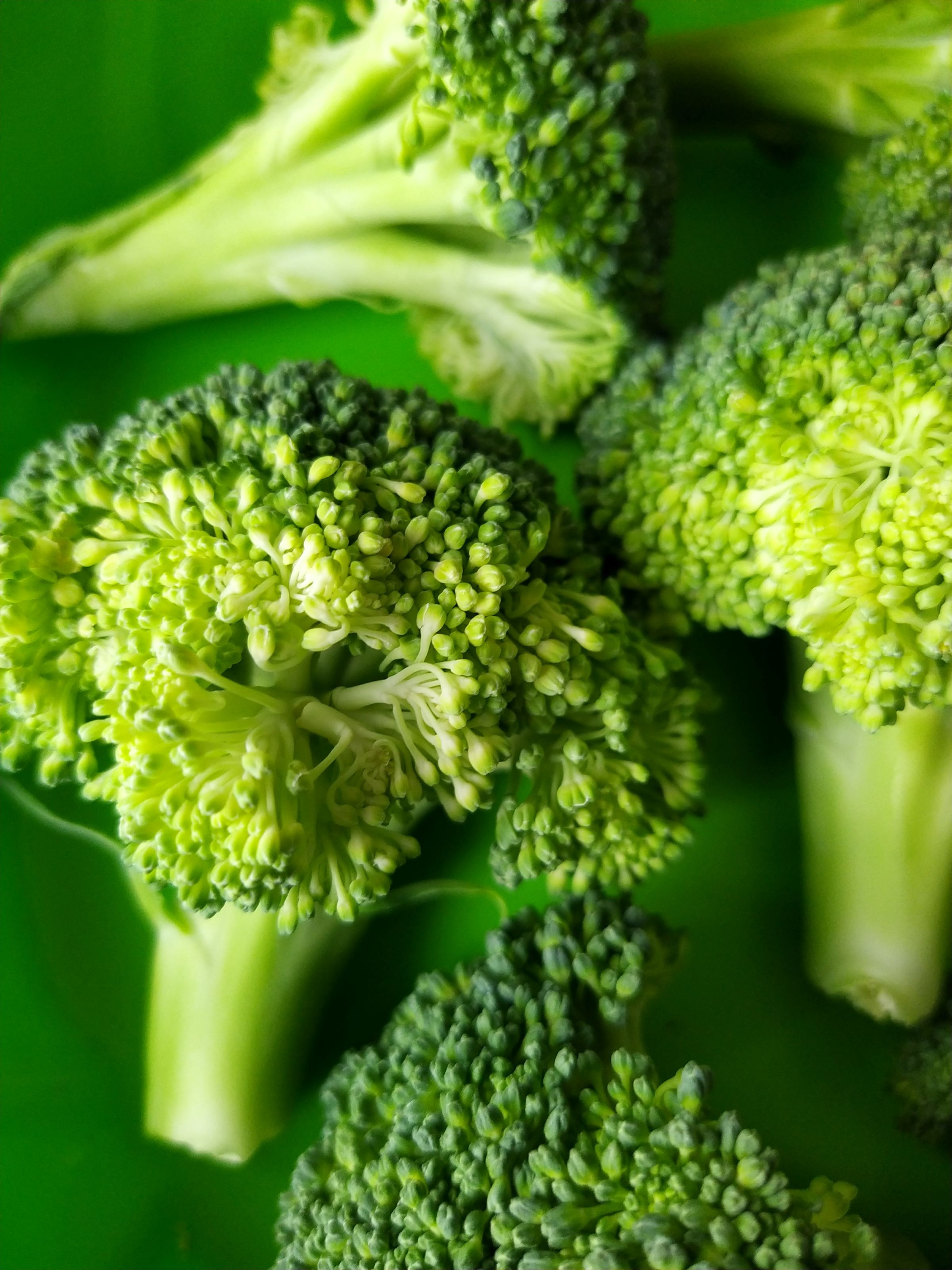
Vegetables
Vegetables form the cornerstone of both vegan and plant-based diets. Packed with essential nutrients and fiber, they can be incorporated into meals in various ways. While all vegetables are technically suitable for both diets, it’s crucial to watch out how they’re prepared or cooked. Avoid dishes that use animal-derived products like butter or cheese, and instead opt for those cooked with plant-based oils or spices. For example, roasted Brussels sprouts with olive oil, stir-fried bell peppers, or raw vegetable salads are all excellent choices.
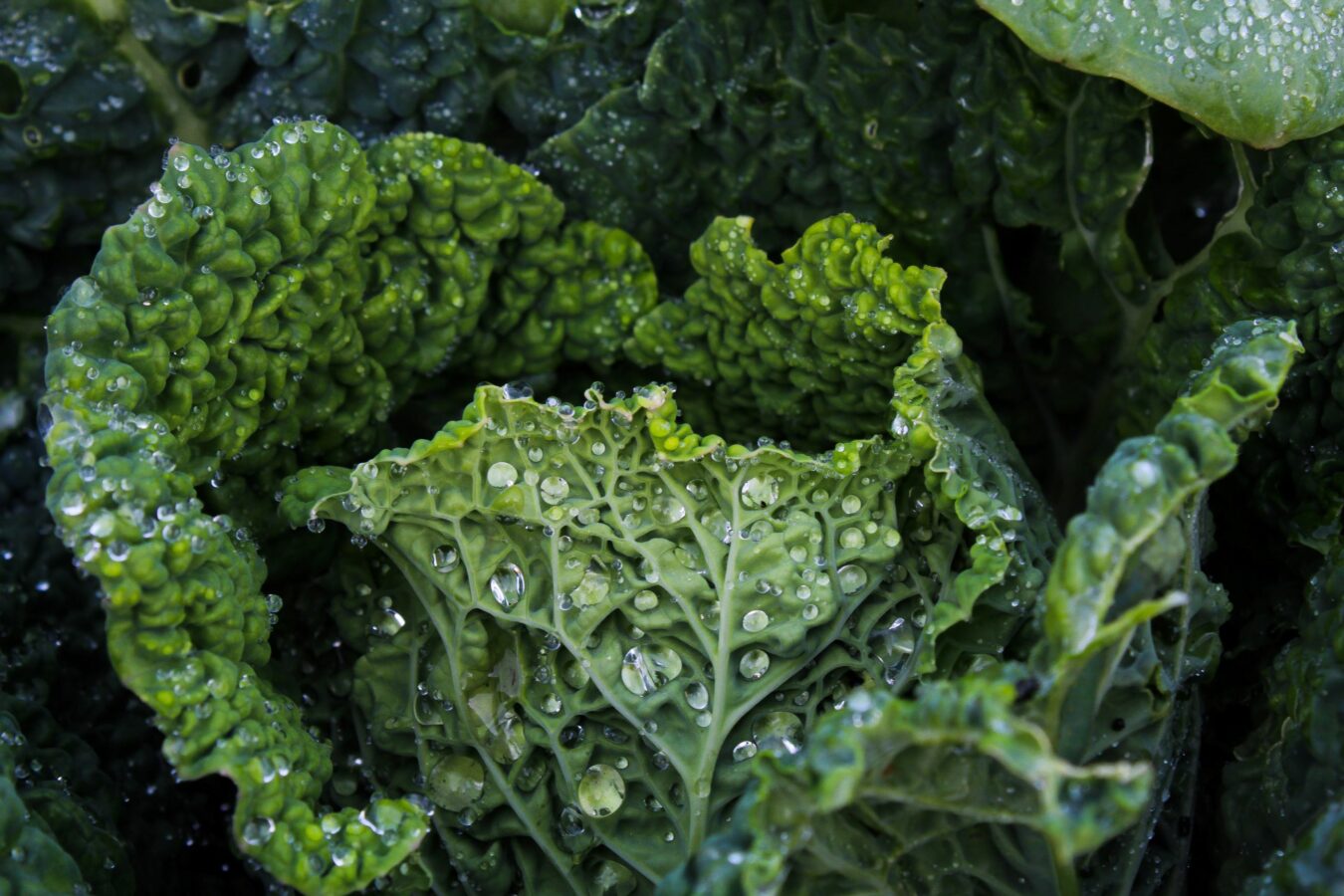
Leafy Greens
Leafy kale, spinach, collard greens, and chard are nutrient powerhouses. They’re rich in calcium, iron, and vitamins A, C, and K. These greens can be included in various dishes, from salads to smoothies, and even in cooked meals. Like other vegetables, ensure your leafy greens are prepared without animal-derived products. You could sauté spinach in olive oil, blend kale into a green smoothie, or add collard greens to a hearty bean soup.
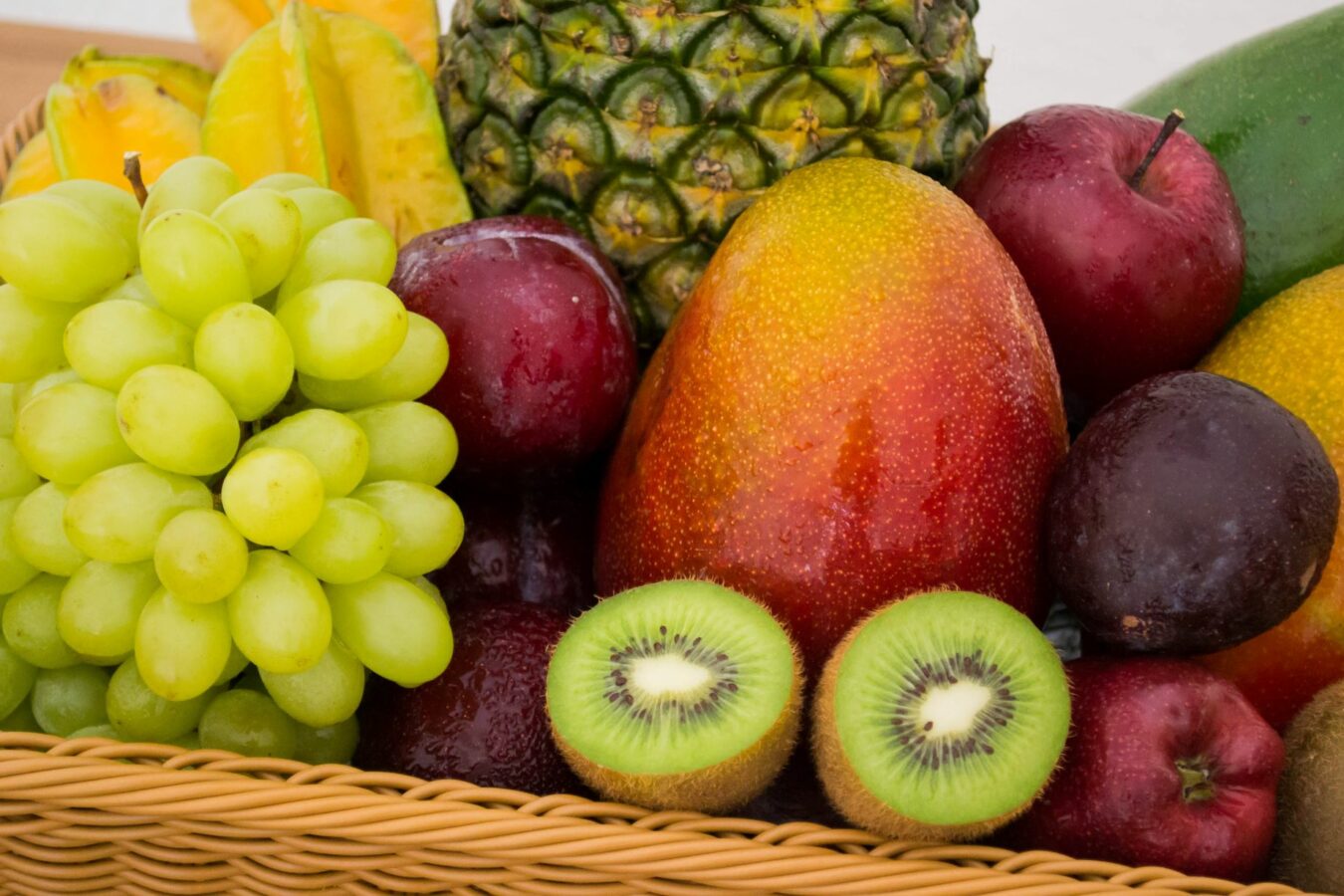
Fruit
Fruits are a staple in vegan and plant-based diets due to their high vitamin and mineral content. Be mindful of fruits coated with shellac or other animal-derived substances, especially certain types of shiny apples or candies. The good news is that most fresh fruits are safe to eat. Examples include antioxidant-rich berries, vitamin C-packed citrus fruits, potassium-rich bananas, and fiber-filled apples.
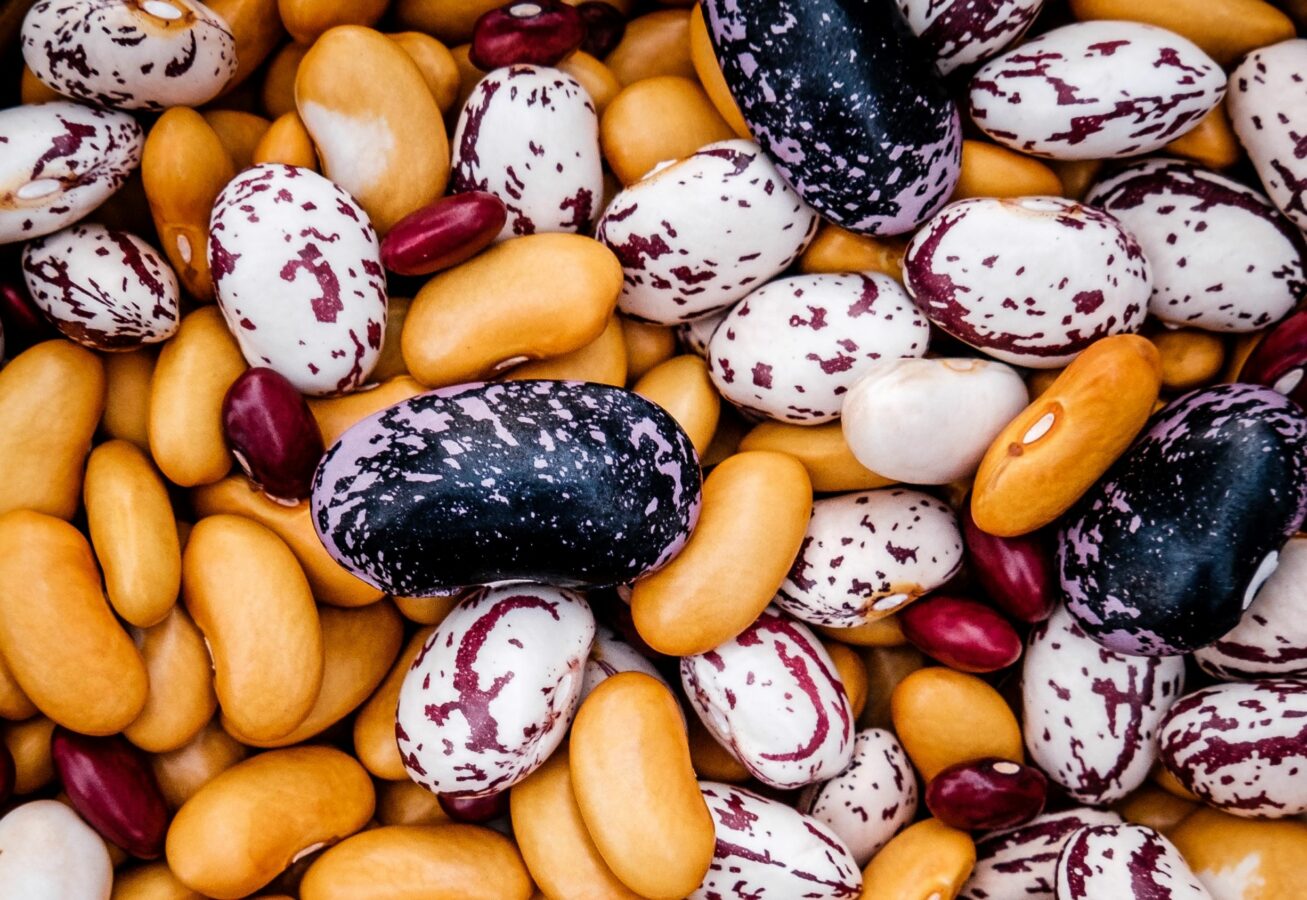
Beans & Legumes
Beans and legumes are excellent sources of plant-based protein and essential minerals. They’re a common staple in both diets, used in dishes ranging from salads and stews to burgers and pastas. Chickpeas, lentils, black beans, and peas are all excellent choices. Just check labels for canned beans or prepared bean dishes to ensure no animal products have been added.
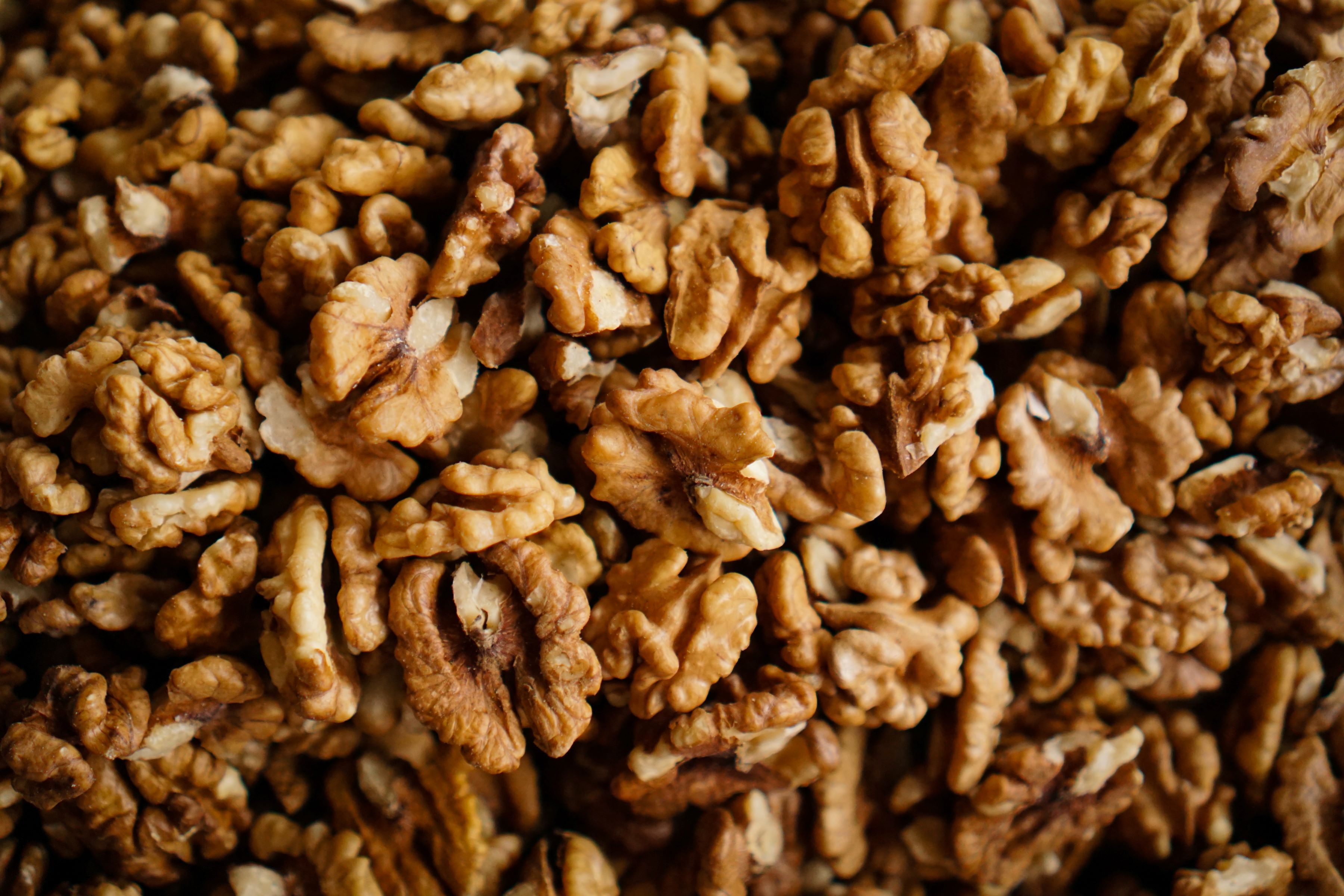
Nuts & Seeds
Nuts and seeds provide healthy fats, protein, and a range of vitamins and minerals. They’re used in various ways, from being eaten raw or roasted as a snack, to being ground into nut butter, or blended into plant-based milks and cheeses. Almonds, walnuts, chia seeds, and flaxseeds are great options. Always check labels when buying pre-packaged nuts or seeds to avoid hidden animal-derived ingredients.
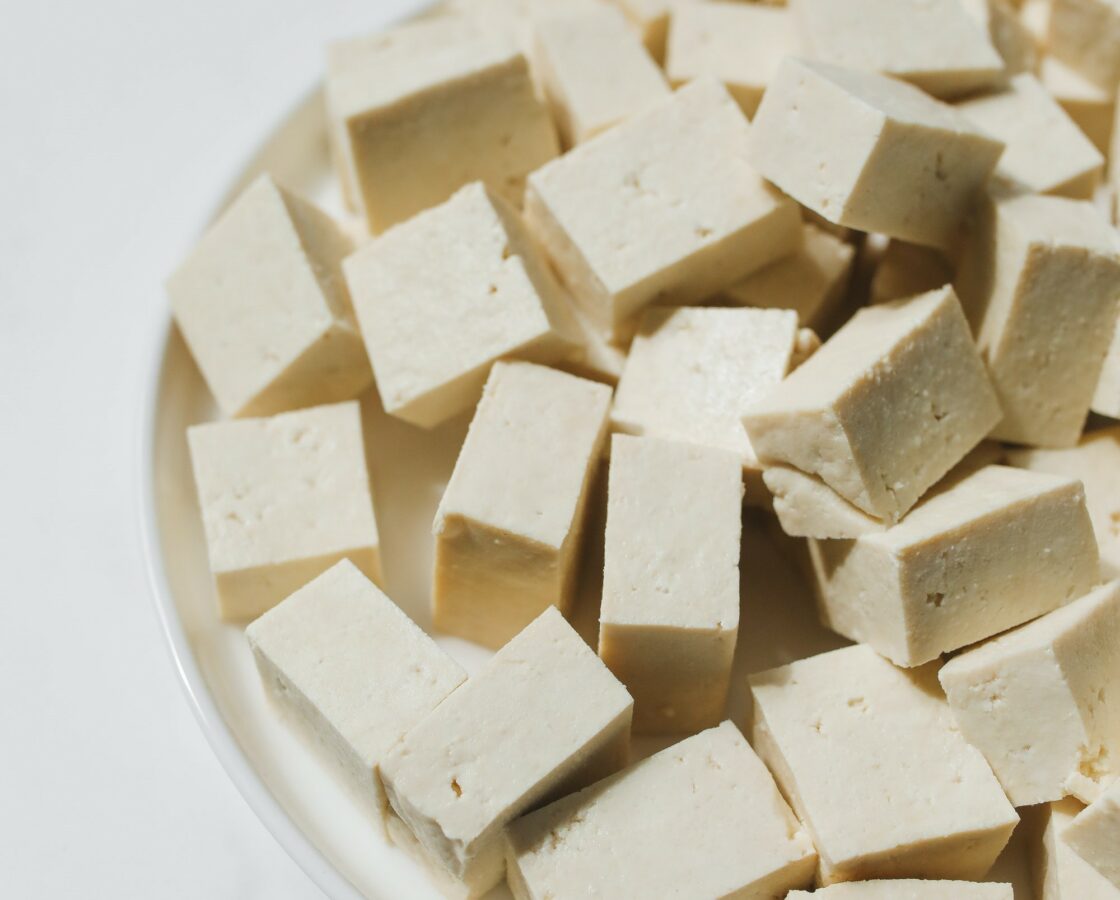
Tofu
Tofu is a common protein source for vegans and those on a plant-based diet. It’s a versatile ingredient in everything from stir-fries to desserts made from soybeans. When buying tofu, opt for organic or non-GMO options to ensure you get the healthiest product.
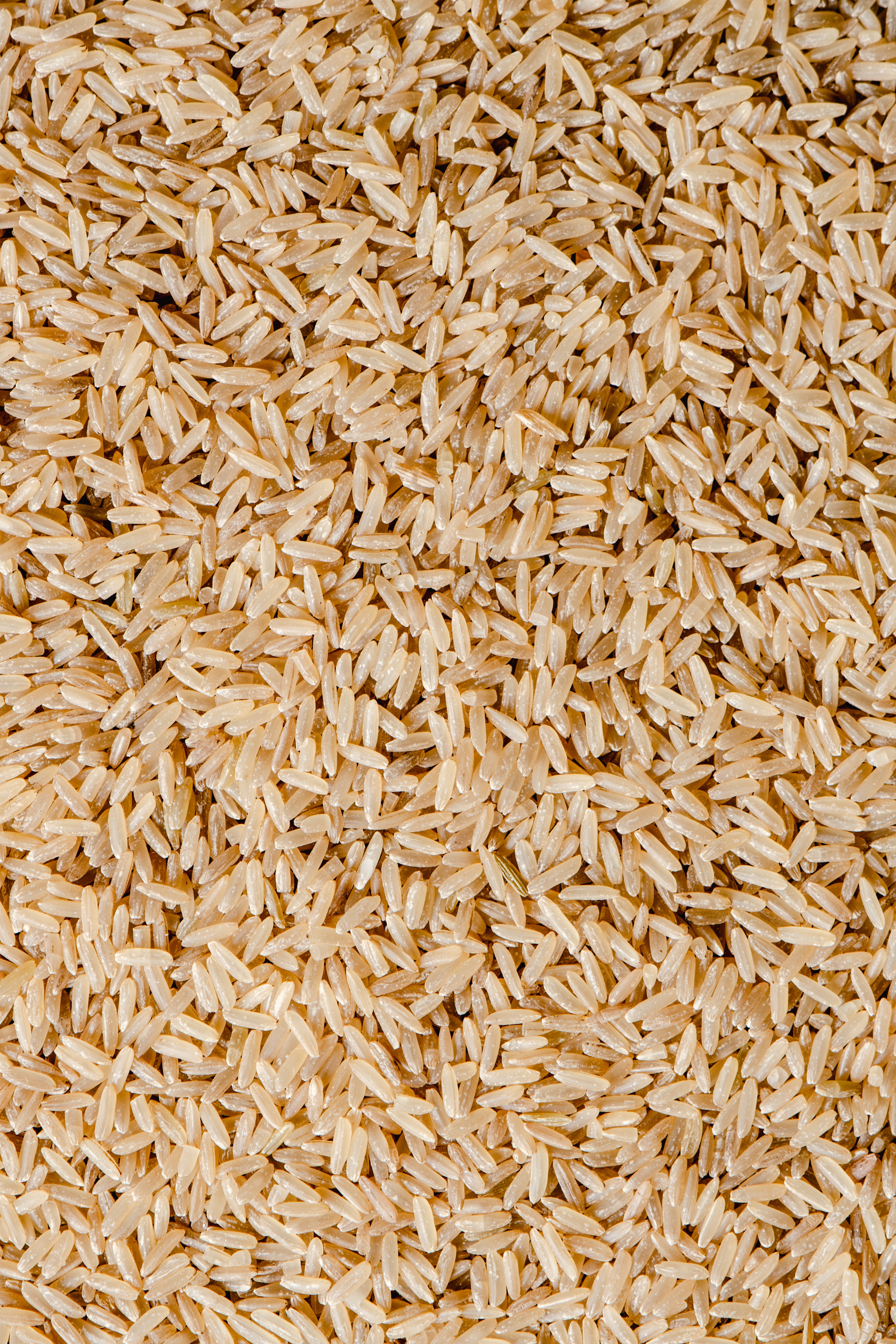
Rice
Rice, whether it’s brown, white, wild, or black, is a versatile grain used in a wide variety of dishes in both diets. It can be used as a base for stir-fries, mixed into salads, or served as a side dish. When preparing rice, use vegetable broth or water instead of chicken or beef broth to keep it vegan or plant-based.
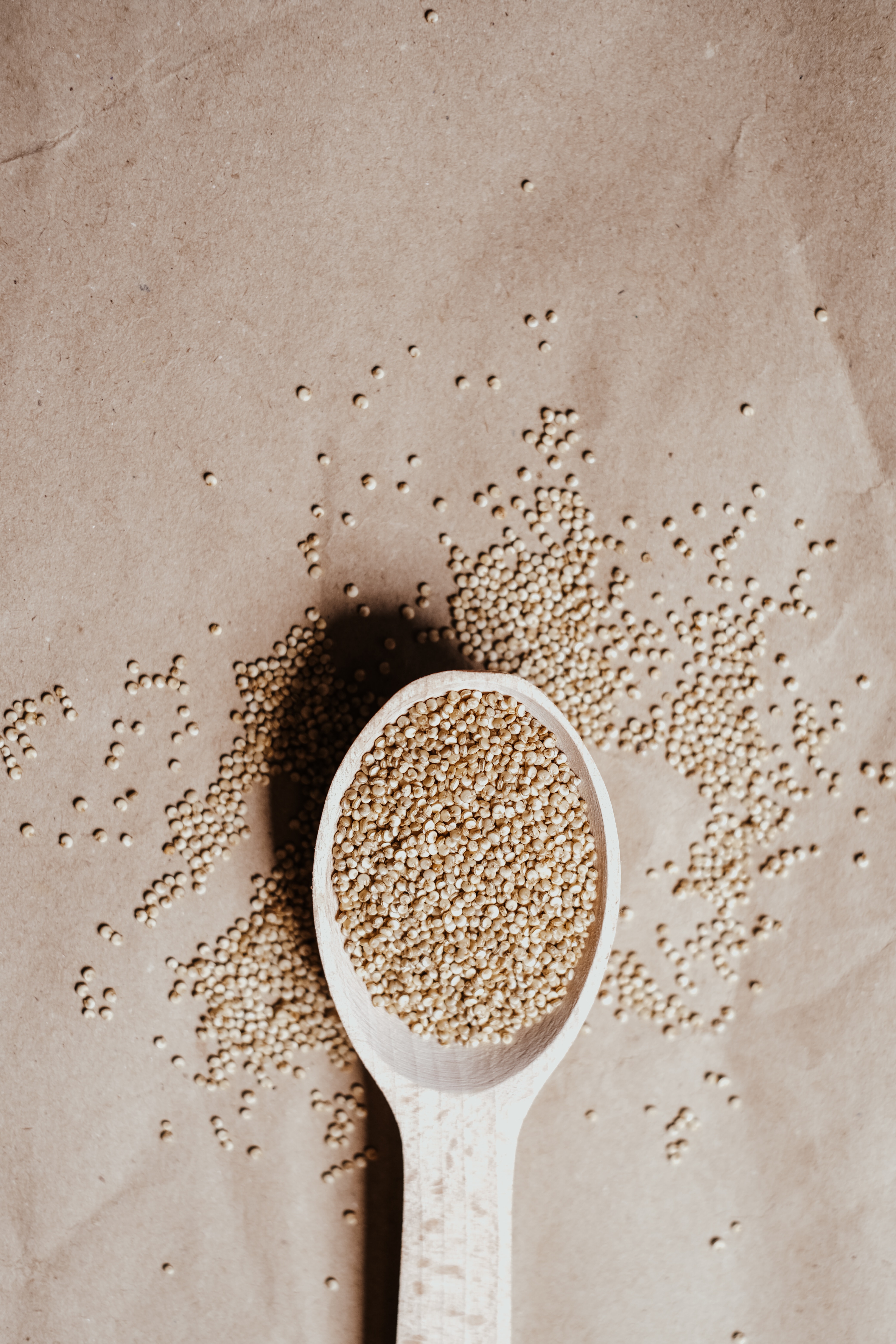
Quinoa
Quinoa is a pseudo grain rich in complete protein and fiber, making it an excellent choice for vegans and those following a plant-based diet. It can be used similarly to rice, in salads, as a side dish, or even as a breakfast cereal. Ensure it’s cooked with water or vegetable broth to keep it appropriate for these diets.
Understanding Plant-Based Diets
A plant-based diet primarily emphasizes consuming whole, minimally processed plant-derived foods. This includes various fruits, vegetables, whole grains, legumes, nuts, and seeds. While the focus is predominantly on plant foods, those following a plant-based diet may occasionally include small amounts of animal products like dairy, eggs, or honey.
Plant-based eating is often chosen for health reasons and environmental sustainability. An increasing body of scientific research supports the health benefits of a plant-based diet, including a lower risk of chronic diseases such as heart disease, diabetes, and certain cancers. Plant-based diets are rich in fiber, vitamins, and antioxidants, while lower in unhealthy fats and cholesterol.
From an environmental standpoint, plant-based diets require fewer resources and produce fewer greenhouse gases than diets high in animal products, thus making them a more sustainable choice.
It’s important to note that while a plant-based diet can include small amounts of animal-derived products, the frequency and quantity of these inclusions can vary widely among different people. A plant-based diet does not equate to strict vegetarianism or veganism, but rather suggests a dietary pattern that prioritizes plants over animal sources.
Despite the differences between these two diets, vegan and plant-based eating patterns share a common goal: to promote a healthier, more sustainable lifestyle choice that respects all forms of life and our shared environment.
Common plant-based foods
Both vegans and plant-based dieters prioritize plants in their meal plans, leaning heavily towards whole grains, fresh fruits, and vegetables. They substitute animal-derived products with alternatives, paving the way for creative culinary techniques and innovative ingredients. For example, tofu, tempeh, and seitan are often used as meat replacements.
Understanding Vegan Diets
A vegan diet is one that completely excludes all animal products and byproducts, including meat, dairy, eggs, and less obvious ingredients like gelatin and honey. This diet involves consuming whole, plant-derived foods, including fresh fruits, vegetables, legumes, grains, nuts, and seeds.
Choosing a vegan lifestyle is often propelled by various factors, including ethical issues, environmental sustainability, and health concerns. Ethical vegans strongly advocate for animal rights, seeking to avoid all forms of animal cruelty and exploitation. They refuse to eat animal-derived foods and use products tested on animals or made from animal by-products.
From an environmental perspective, veganism is seen as a way to reduce carbon footprint and minimize the devastating effects of large-scale animal agriculture. This choice is supported by studies indicating that a plant-based diet requires less energy and resources than a diet rich in animal products.
Common vegan foods
- Fruits and vegetables: All fruits, vegetables, and berries.
- Legumes: Beans, lentils, chickpeas, peas, etc.
- Nut butter and nuts: Almonds, walnuts, cashews, macadamia nuts, peanut butter, almond butter, etc.
- Seeds: Chia seeds, flaxseeds, hemp seeds, etc.
- Grains: Quinoa, rice, oats, buckwheat, sorghum, amaranth, corn, barley, wheat, triticale, etc.
- Plant-based proteins: Tofu, tempeh, seitan, etc.
- Plant-based milk: Almond milk, soy milk, rice milk, oat milk, etc.
- Plant-based oils: Olive oil, coconut oil, avocado oil, etc.
- Herbs, spices, and other flavorings: All herbs and spices, nutritional yeast, soy sauce, vinegar, etc.
Can a vegan diet be plant-based?
Yes, a vegan diet is inherently plant-based. A vegan diet excludes all animal-derived products, instead, focusing entirely on plant-based foods. Essentially, a vegan diet is a type of plant-based diet that solely relies on plant-derived foods.
FAQ
What is the main difference between a Vegan diet and a Plant-Based diet?
Vegan diets avoid all animal-derived products, including non-food items like leather and wool, driven by ethical beliefs. Plant-Based diets focus on plant foods for health reasons and may occasionally include some animal products but don’t have strict ethical restrictions.
Is a vegan or plant-based diet healthier?
A vegan and plant-based diet can be healthier than a standard Western diet, typically high in processed foods, saturated fats, and sugar. However, the health benefits largely depend on the quality of the diet and how well it is balanced and planned.
Both diets can be healthy if they are properly planned and balanced, incorporate a wide variety of foods, and are low in processed foods. When choosing a diet, consider your nutritional needs, lifestyle, and food preferences, and consult a registered dietitian or healthcare provider to ensure that your diet is balanced and meets all your nutritional needs.
